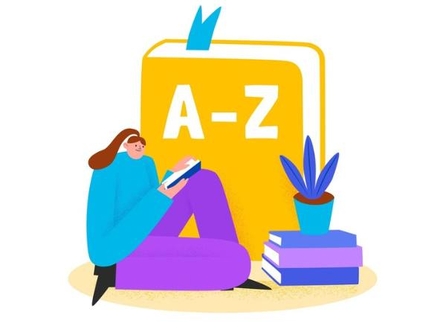Selection of online English dictionaries and their useful features

In today's world, when information is available literally in one click, an online English dictionary is a great tool for learning. So let’s find out how online English dictionaries can be useful for those who study English.
An online dictionary has undeniable advantages. They are: accessibility – you just need to have access to the Internet; speed – searching for a word takes several seconds; multifunctionality – modern online dictionaries have a wide range of functionality; they are up-to-date – resources are constantly being updated reflecting the dynamics of the language.
Most dictionaries have useful features such as the ability to listen to pronunciation, view examples of word usage in different contexts, synonyms and antonyms, check collocations, learn the etymology (origin) of a word, and even translate into different languages.
If you are a beginner, use an English-Ukrainian dictionary (e.g., E2U); it is very convenient because it provides direct translation. However, as your language level progresses, starting from B1, it is worth using English dictionaries (e.g., Cambridge, Oxford, Longman). Working with them stimulates thinking in English — you not only get the translation, but also learn the word’s different meanings, its possible collocations, and more.
Which online English dictionary to choose?
Modern online English dictionaries provide quite a lot of valuable information, and it is important to take advantage of their capabilities. Thus, among the basics, one should know that most English dictionaries in the definition of nouns have abbreviations C/U which mean that the noun is countable (C - countable) or uncountable (U - uncountable); articles on verbs contain abbreviations T/I denoting transitive⠀ (T - transitive, require the use of a complement), and intransitive (I - intransitive, used independently, without a complement) verbs.
Among the variety of English dictionaries, let's look at the most popular and convenient resources.

Cambridge Dictionary has a wide functionality and convenient interface, gives all possible meanings of words, transcription, synonyms and antonyms, allows listening to pronunciation in British and American variants, contains a section of grammar articles and, what is pleasant, has a function of translation into other languages. A valuable feature of this dictionary is the ability to create your own account in order to practice vocabulary. In addition to the web version, Cambridge Dictionary also has a convenient mobile application.

Oxford Dictionary of English is the classic version, containing short, but sometimes a bit complicated, definitions (so it is recommended for B1+ students), fixed expressions and their meanings, synonyms, examples of usage in context, transcriptions, and allows you to listen to British and American pronunciation. This resource also has a more accessible version – Oxford Learner's Dictionaries: everything is the same, but in more comprehensible language.

Longman Dictionary of Contemporary English is easy to use, it gives definitions of words, examples of their use in context, transcription, you can listen to American and British pronunciation, as well as you can find collocations with the word and there is an opportunity to listen to whole sentences with it. A useful feature of this English dictionary is the function to instantly look up the meaning of a word you don't know in the definition, which enriches your vocabulary. There is also a section with exercises and quizzes.

Collins Dictionary has all the same features as the already reviewed resources, namely: definition, transcription, pronunciation, synonyms. In addition, it has illustrations of words, data on their origin and frequency of use, collocations and pronunciation videos. In the word definition, you can click on unknown words to find out their meaning. Decides, you can listen not only to the pronunciation of a word itself, but also to sentences with it, which is very valuable as you practice your listening skills, which helps to distinguish words you have learned in speech. Collins Dictionary also has a function of translation into different languages.

Merriam-Webster. America's most useful and respected dictionary. Probably the most popular dictionary of English in America. It provides the definition of a word, its synonyms, antonyms, etymology, transcription and pronunciation, as well as a number of examples of word usage in context.

Urban Dictionary. An interactive dictionary of spoken English regularly updated by users. This resource will be useful for those who follow English-speaking bloggers or need to translate slang and expressions from memes. This dictionary is literally created by English-speaking users and you can evaluate the interpretation of the word. It contains a lot of humour, but is intended for the category of adult users, and, unfortunately, there is no option to listen to the pronunciation.

And one more useful resource. OZDIC is a dictionary of English collocations, which allows you to quickly check the combination of words. Enter the word you need and get all the variants of its use with different parts of speech.
Working with a dictionary is not just a one-time search for a word’s translation or meaning. It is a systematic process of methodical familiarization with the language as a whole, including its lexical and grammatical features, through both episodic and regular practice with specific vocabulary.
Use online dictionaries! They help you expand your vocabulary, improve your grammar, understand the nuances of the language, and, in general, are indispensable when learning English.
Read also:
Our courses:
